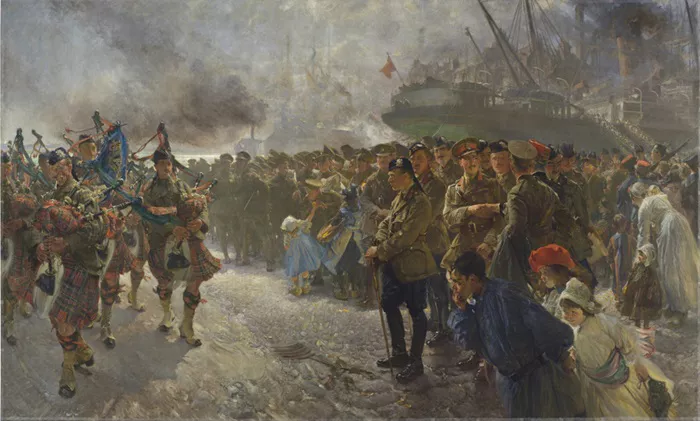January 14 holds significance in Canadian history, marked by various notable events across different years. This article will explore key occurrences on this date, providing detailed insights into their contexts and implications.
What Happened on January 14 in Canadian History?
1. Arrival of the 1st Canadian Division in France (1915)
On January 14, 1915, the 1st Canadian Division arrived in France from England during World War I. This event marked a pivotal moment for Canada as it signified the country’s deepening involvement in the war effort. The division was part of the larger British Expeditionary Force and was tasked with supporting Allied operations on the Western Front.
The arrival of the 1st Canadian Division was a response to the urgent need for reinforcements following heavy casualties suffered by Allied forces. The division was composed of approximately 30,000 soldiers and included units like the Royal Canadian Regiment and the Princess Patricia’s Canadian Light Infantry. Their deployment represented not only a military commitment but also a growing sense of national identity among Canadians.The division participated in several key battles throughout the war, including the Battle of Ypres and the Battle of Vimy Ridge, where they gained a reputation for bravery and effectiveness. The experiences of these soldiers contributed to a collective memory that shaped Canada’s national consciousness.
The involvement in World War I had profound effects on Canadian society, including changes in gender roles as women took on jobs traditionally held by men who were away at war. Additionally, the war effort fostered a sense of unity among Canadians from diverse backgrounds, although it also highlighted divisions, particularly between English and French Canadians regarding conscription.
2. The Birth of Notable Figures (Various Years)
Throughout history, January 14 has also been associated with the birth of influential Canadians who have made significant contributions to various fields.
William Lyon Mackenzie King (1874): Born on January 14, King became one of Canada’s most prominent Prime Ministers, serving three non-consecutive terms. His leadership during World War II was particularly notable for his efforts to maintain national unity.
Bishop John Strachan (1778): A significant figure in early Canadian history, Strachan was an Anglican bishop who played a crucial role in establishing education systems in Upper Canada.
These figures exemplify how individuals born on this date have shaped Canada’s political landscape and social fabric.
3. Legislative Developments (Various Years)
January 14 has also seen important legislative actions that have influenced Canadian governance and rights.
In some years, discussions around civil rights and social justice have emerged prominently around this date. For instance, debates regarding women’s suffrage gained traction during the early 20th century, culminating in significant legislative changes across provinces.
The push for women’s rights during this period reflected broader societal changes as women began to assert their roles beyond traditional domestic spheres. The eventual granting of voting rights to women was a landmark achievement that altered the political landscape in Canada.
Cultural Milestones
Cultural events have also been associated with January 14, showcasing Canada’s rich heritage. Various cultural festivals and events take place around this date, celebrating Indigenous cultures and contributions from immigrant communities. These events serve to highlight Canada’s diversity and promote understanding among different cultural groups.
Conclusion
January 14 is a date rich with historical significance in Canada, encompassing military milestones, influential births, legislative developments, and cultural celebrations. Each event contributes to the tapestry of Canadian history, reflecting the nation’s evolution over time.As we reflect on these occurrences, it is essential to recognize their lasting impact on contemporary Canadian society. Understanding these historical contexts allows us to appreciate the complexities of Canada’s journey as a nation and its ongoing commitment to diversity and inclusion.
In exploring these events further, one can see how they resonate with current issues facing Canada today, such as discussions around identity, rights, and national unity. The legacy of those who came before us continues to shape our collective future as Canadians strive for progress while honoring their past.
Related Topics:

